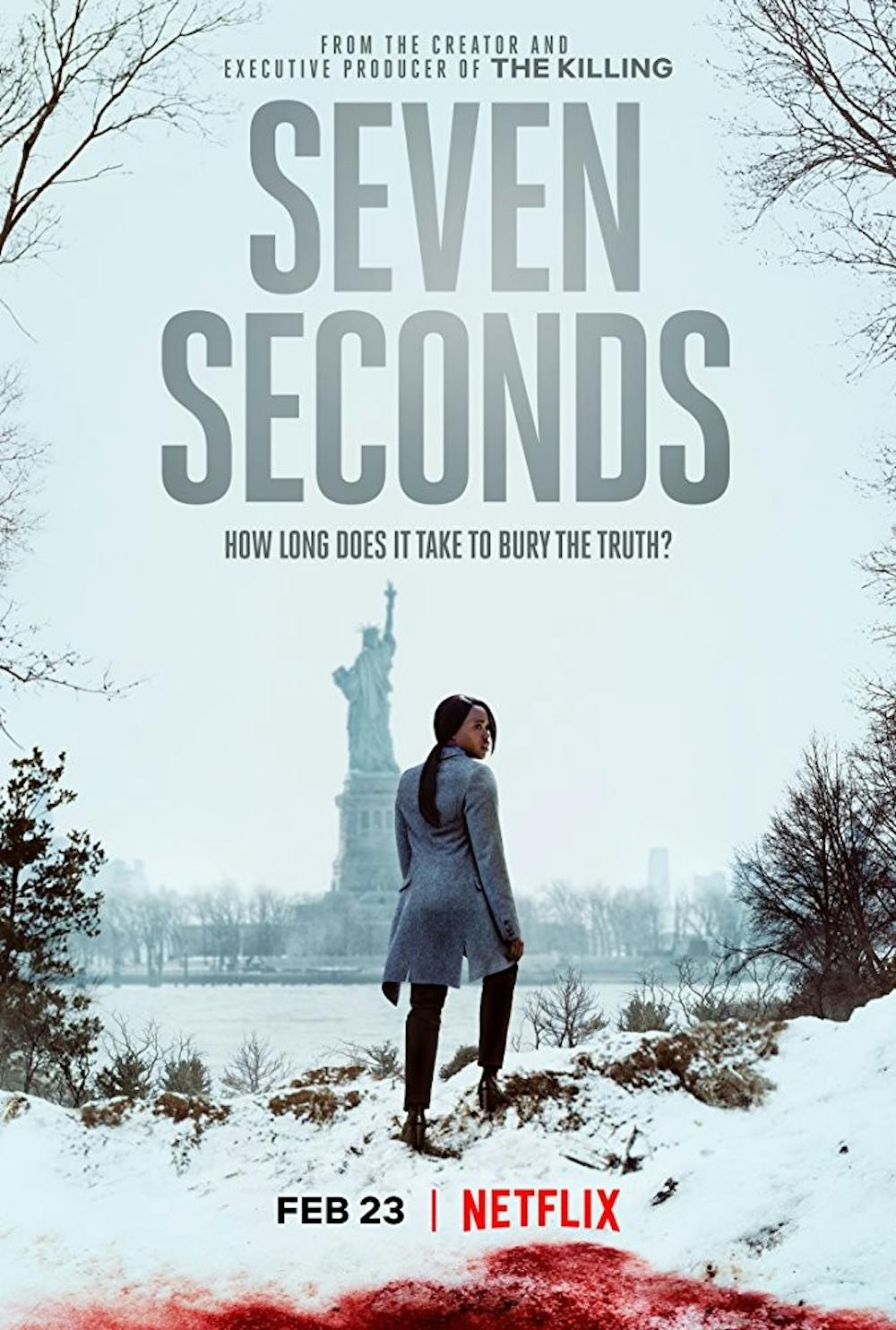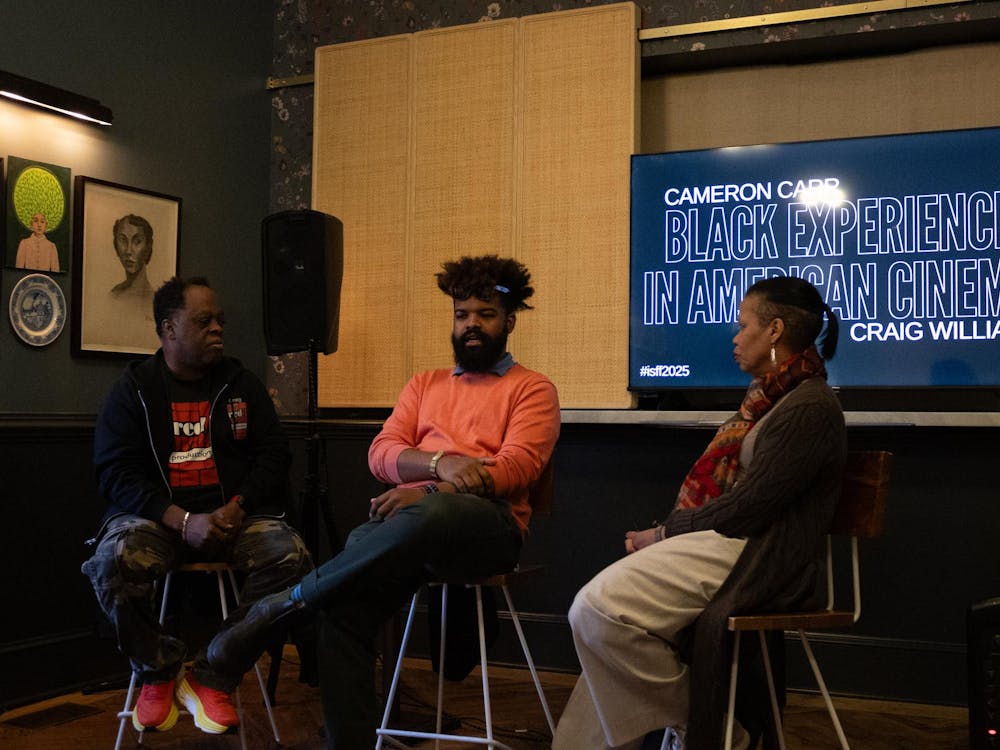“Seven Seconds” begins like every other murder mystery in Netflix’s “Dark TV Drama” category — with a crime. And yet, as the camera pans across a snowy park in Jersey, the first face seen is not the victim’s, but the killer’s. What follows this precipitous beginning is the surprising and, at times, disconcerting characterization of all those impacted by the events of that day in the park. From the outset, “Seven Seconds” leans into the tensions between what it means to be victim or killer, black or white, right or wrong, leaving its plot in the murky gray of a reality in which an earnest man can turn to darkness just as easily as a lost woman can find the light.
While many cop dramas revolve around the classic “who done it” plot line, “Seven Seconds” never leaves any doubt surrounding the crime. Peter Jablonski (Beau Knapp), a young, Jersey City police officer driving through a park on the way to see his pregnant wife, hits something. That something is quickly revealed to be a young black boy named Brenton Butler. Realizing what he has done, Jablonski turns to his commanding officer for guidance. What follows is the predictable cover-up and resulting turmoil and darkness that accompanies a hasty plan steeped in corruption and founded on a system that continually fails to combat the systematic racism present in America’s justice system.
Ultimately, the cataloguing of Jablonski’s descent into darkness is drawn out and at times, slow given the magnitude of the subject matter. What could have been a decisive and hard-hitting look at how the justice system treats black victims and guilty police officers is instead often dull and diluted by a few too many significant characters. Attention is spread across not only the grieving family, the guilt-ridden cop and the down-and-out prosecutor, but also a litany of other characters — each given a back story regardless of their influence over the storyline. Especially as the show begins, it is challenging to understand who is significant and who is merely a glorified extra. This misdirection leaves the show without any concrete focus — weakening the emotional impact of the show’s powerful expressions of guilt and grief.
Even as Regina King gives a stunning and heart-breaking performance as the devastated mother of Brenton Butler, she is not made the center of the show. Rather, her brief expressions of profound loss and broken unraveling are cluttered by drawn-out and unnecessary subplots. There is, however, a coherent statement that is pervasive across the jumbled ten episode saga — the system is failing for women like Mrs. Butler and those with the capacity to change it are found lacking.
Bolstering this significant and weighty message is a rage and incurable grief not just for the fictional Brenton Butler, but also the many, very real black boys who he represents. In a moment of profound loss, the Butler family asks, “Where was your God when Brenton lay bleeding down in that ditch?” “Seven Seconds” doesn’t offer an answer for the Butlers. It does, however, offer some silver lining of hope when looking toward a justice system that continually fails and remains blind.
Veena Sud's depiction of this hope is the saving grace in his ambitious portrait of those left behind after a moment of utter and complete tragedy. It comes in the form of a father who learns to finally understand the son, whom he could never find the words to tell that he loved. It comes in the proud tears of a young man grieving the person he was unable to love in the open. It comes in the prosecutor who looks up at the blindfolded “Lady Justice” and keeps working in pursuit of a better world in which principle can finally meet reality. Even as the show reaches its unsatisfying conclusion, it leaves a necessary awareness of the propensity everyone has to turn toward — or away — from darkness given the chance. In doing so, “Seven Seconds” reminds us that tragedy has not yet broken America’s soul.







